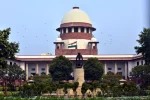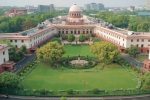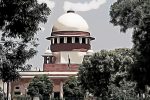Once civil court is seized, proceedings must end – Supreme Court
After the Civil Court takes jurisdiction over the case, the Supreme Court stated that the procedures under Sections 145 and 146 of the Criminal Procedure Code must stop.
According to the bench of justices, the Civil Court will ultimately decide the parties’ respective claims to title or possession.
When debating a special leave petition challenging an order of the Allahabad High Court that was quashed according to Section 146 of the Criminal Procedure Code, the court made this observation. The parties in this case are at odds over a block of land in Mohalla Angooribagh, Faizabad, Uttar Pradesh, that has some shops and a residential building built on it.
When a disagreement over land or water is likely to result in a breach of peace, the Executive Magistrate procedure is addressed in Section 145 of the Criminal Procedure Code. The power to seize the object of the dispute and name a receiver is described in Section 146 of the Criminal Procedure Code.
The bench of the Supreme Court said in its ruling: “It goes without saying that the procedures under Section 145/146 Cr.P.C. cannot continue and must terminate once the Civil Court becomes involved in the case. The Civil Court will ultimately decide the parties’ respective rights to ownership or possession.”
However, the court ordered that neither party shall grant any third party rights or encumbrances over the subject property in order to prevent the need for several legal processes.
The Supreme Court noted in a recent ruling in Mohd Shakir v. State of Uttar Pradesh | 2022 LiveLaw (SC) 727 that a Magistrate cannot make any observations or return any findings as to the rights of the parties qua the in question property while dismissing the proceedings under Section 145 CrPC due to the ongoing civil litigation.
Mohd. Abid
vs
Ravi Naresh






